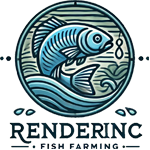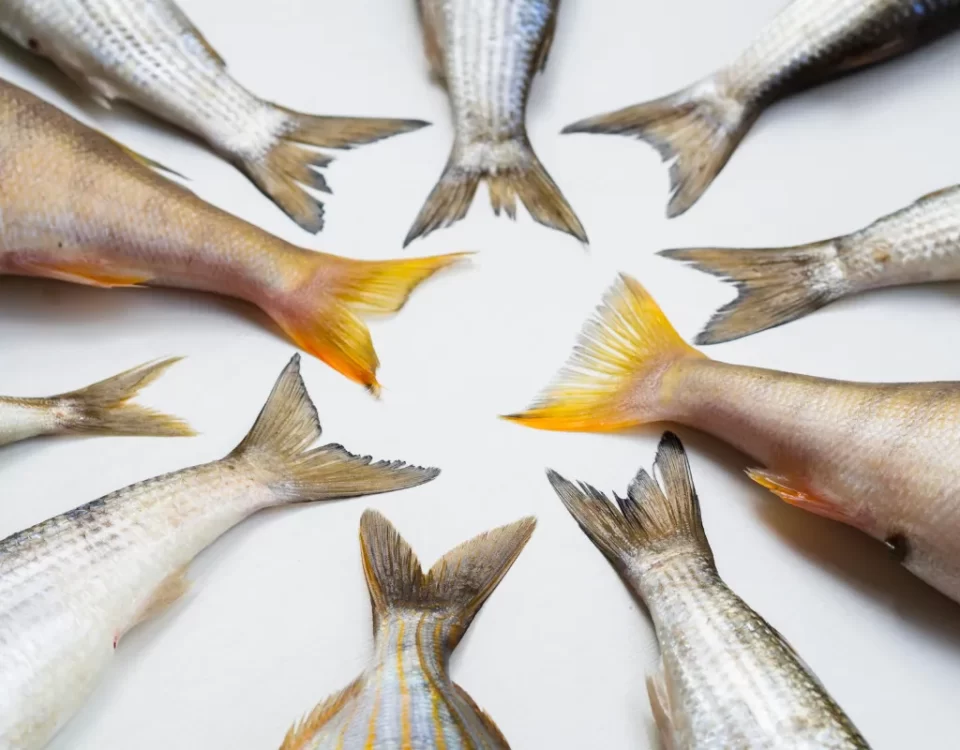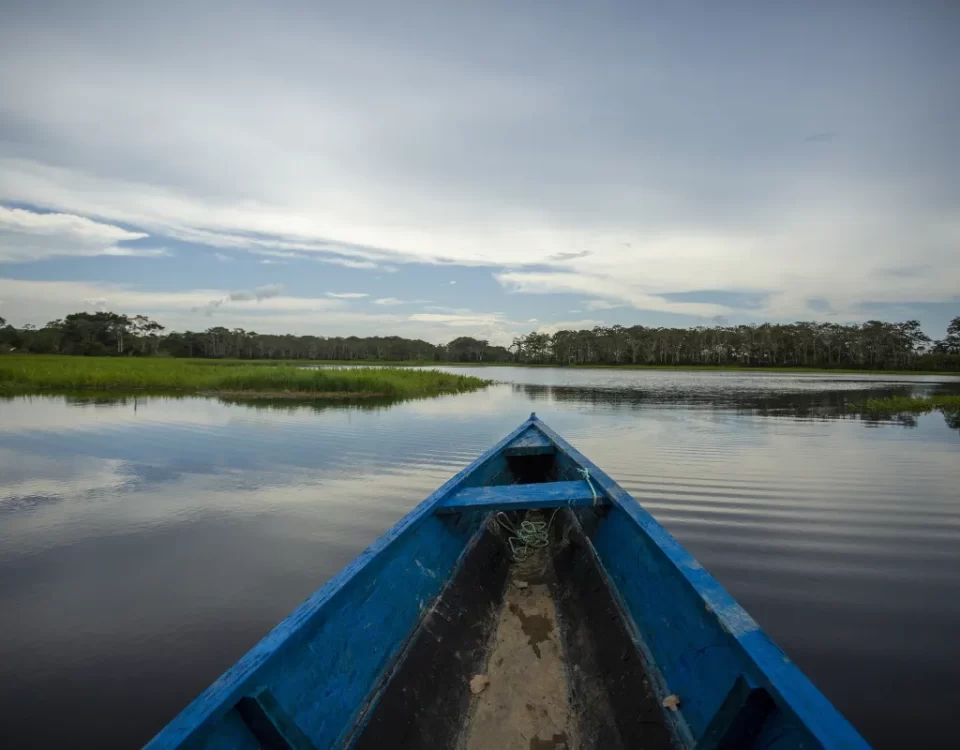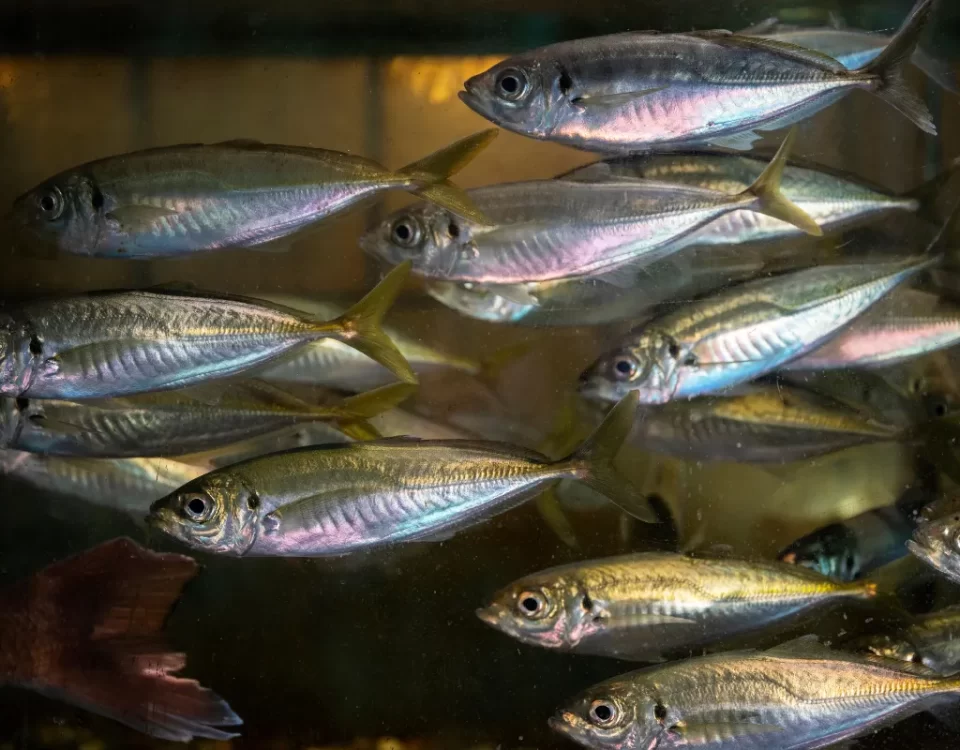Sustainable Aquaculture Certifications: What You Need to Know

How to Prevent and Treat Fish Diseases in Aquaculture
September 13, 2024
Water Filtration Systems: Keeping Your Aquaculture Clean
September 16, 2024Sustainable aquaculture certifications have emerged as a pivotal tool in the realm of fish farming, setting standards and guidelines to ensure that the harvesting of aquatic species is done in a manner that is both ethically responsible and environmentally sustainable. These certifications serve as a testament to the industry’s commitment to meeting the rising global demand for seafood while prioritizing the health of our oceans and marine ecosystems. In today’s conscientious consumer landscape, where the origins of our food are increasingly scrutinized, sustainable aquaculture certifications have become a beacon of assurance for those seeking to make informed and ethical choices.
The importance of sustainable aquaculture certifications cannot be overstated in the context of modern fish farming practices. By adhering to the stringent criteria set forth by reputable certification bodies, aquaculture facilities can demonstrate their dedication to upholding best practices that prioritize the well-being of aquatic species and their natural habitats. These certifications not only instill trust among consumers but also play a critical role in conservation efforts by promoting sustainable fishing practices that strive to preserve our marine biodiversity for generations to come.
One of the primary objectives of sustainable aquaculture certifications is to combat the detrimental effects of overfishing and habitat destruction that have plagued the seas in recent years. By implementing rigorous standards that govern water quality, stocking densities, feed sources, and waste management, these certifications empower fish farmers to operate in a way that minimizes their environmental footprint. In doing so, they pave the way for a more balanced and harmonious relationship between human activity and the delicate marine ecosystems upon which we rely for sustenance.
In addition to safeguarding the health of our oceans, sustainable aquaculture certifications also hold the potential to elevate the social responsibility of the fish farming industry. By promoting fair labor practices, community engagement, and transparency in operations, these certifications foster a culture of accountability and integrity within the aquaculture sector. Furthermore, they provide consumers with the means to support businesses that prioritize not only environmental stewardship but also the well-being of the individuals and communities involved in the production process.
What is Aquaculture?
Aquaculture, often referred to as fish farming, is the practice of cultivating various aquatic organisms under controlled conditions. This method of food production plays a significant role in the modern food industry by providing a sustainable source of seafood to meet the growing global demand. Unlike traditional fishing, which relies on wild fish stocks, aquaculture allows for the breeding and rearing of fish, shellfish, and aquatic plants in controlled environments such as ponds, tanks, or ocean cages.
Importance in the Modern Food Industry
The significance of aquaculture in today’s food industry cannot be overstated. With the decline of wild fish populations due to overfishing and environmental pressures, aquaculture serves as a crucial supplementary source of seafood. By cultivating fish in controlled environments, aquaculture helps alleviate the strain on natural ecosystems and contributes to food security worldwide. Additionally, aquaculture offers a consistent supply of high-quality seafood year-round, reducing the reliance on wild-caught fish and promoting sustainable practices.
Growth of Aquaculture
Over the past few decades, aquaculture has experienced remarkable growth to keep up with the escalating demand for seafood. The industry has expanded to encompass a diverse range of species, including salmon, tilapia, shrimp, and mollusks, among others. This growth has had a profound impact on the global seafood supply, with aquaculture now accounting for a significant portion of the seafood consumed worldwide. As populations continue to increase and wild fish stocks dwindle, aquaculture is expected to play an even more critical role in meeting the protein needs of a growing population while minimizing the environmental impact of traditional fishing practices.
Importance of Sustainable Aquaculture
Sustainable aquaculture plays a critical role in preserving marine ecosystems worldwide. As the demand for seafood continues to rise, traditional fishing methods have proven to be unsustainable, leading to overfishing and habitat destruction. By embracing sustainable aquaculture practices, we can help alleviate the pressure on wild fish populations and protect the delicate balance of marine ecosystems. Through responsible farming methods, such as reducing pollution and minimizing habitat destruction, sustainable aquaculture promotes a healthier marine environment for current and future generations.
Preserving Marine Ecosystems
One of the key reasons why sustainable aquaculture is essential lies in its ability to reduce the strain on wild fish populations. Overfishing has led to the decline of various marine species, disrupting the natural food chain and ecosystem dynamics. By cultivating fish through sustainable practices, such as using closed-loop systems to minimize waste and recycling water, aquaculture operations can help alleviate the pressure on wild fish stocks. This proactive approach not only promotes biodiversity but also contributes to the overall health of marine ecosystems.
Benefits for the Environment
Sustainable aquaculture certifications offer a stamp of approval for aquaculture operations that adhere to rigorous environmental standards. By obtaining certifications from reputable organizations, such as the Aquaculture Stewardship Council (ASC) or the Best Aquaculture Practices (BAP), farms demonstrate their commitment to sustainable practices. These certifications not only enhance the credibility of the aquaculture industry but also encourage continuous improvement in environmental stewardship. Consumers can confidently choose products bearing these certifications, knowing that they support environmentally responsible practices.
Benefits for Consumers
Consumers play a vital role in driving demand for sustainable seafood products. By choosing products with sustainable aquaculture certifications, consumers signal their support for environmentally friendly practices in the aquaculture industry. Certifications provide assurance that the seafood was produced in a manner that minimizes its environmental impact, from reducing pollution to ensuring the welfare of farmed fish. Additionally, consumers can enjoy a sense of satisfaction knowing that their choices contribute to the preservation of marine ecosystems and the promotion of sustainable aquaculture practices.
Common Sustainable Aquaculture Certifications
Sustainable aquaculture certifications play a crucial role in ensuring the environmental and ethical practices of fish farming operations. Several certifications have gained widespread recognition for their stringent criteria and commitment to sustainability.
Aquaculture Stewardship Council (ASC)
The Aquaculture Stewardship Council (ASC) is one of the most well-known sustainable aquaculture certifications globally. Established in 2010, ASC sets rigorous standards for sustainable aquaculture practices, focusing on environmental impact, social responsibility, and animal welfare. The certification covers a wide range of species, including salmon, shrimp, and tilapia. ASC-certified farms must adhere to strict guidelines regarding feed sourcing, water quality management, and habitat conservation.
GlobalG.A.P.
GlobalG.A.P. is another prominent certification program that encompasses various agricultural sectors, including aquaculture. This certification promotes Good Agricultural Practices (G.A.P.) to ensure safe and sustainable food production. Key criteria of GlobalG.A.P. certification for aquaculture operations include traceability, chemical management, and worker health and safety. By obtaining GlobalG.A.P. certification, fish farms demonstrate their commitment to transparency and quality in their operations.
Best Aquaculture Practices (BAP)
Best Aquaculture Practices (BAP) certification, developed by the Global Aquaculture Alliance, focuses on promoting responsible aquaculture practices worldwide. BAP certification encompasses various levels, including farms, processing plants, hatcheries, and feed mills. Criteria for BAP certification cover areas such as environmental stewardship, social accountability, food safety, and animal welfare. By meeting BAP standards, aquaculture facilities showcase their dedication to sustainability and continuous improvement.
Marine Stewardship Council (MSC)
While not solely dedicated to aquaculture, the Marine Stewardship Council (MSC) plays a vital role in certifying sustainable seafood, including farmed fish that meet their stringent criteria. MSC certification verifies that fish products originate from well-managed fisheries and are sourced in an environmentally friendly manner. While not exclusive to aquaculture, the MSC certification holds significant credibility in the seafood industry, providing consumers with assurance that their seafood choices support sustainable practices.
In conclusion, these common sustainable aquaculture certifications set the standards for responsible fish farming practices. By obtaining these certifications, fish farms demonstrate their commitment to sustainability, environmental stewardship, and social responsibility, ultimately contributing to a more sustainable and ethical aquaculture industry.
Benefits of Sustainable Aquaculture Certifications
In the realm of fish farming, sustainable aquaculture certifications serve as a beacon of responsible practices and ethical standards. These certifications not only validate a farmer’s commitment to environmental stewardship but also bestow a myriad of benefits that reverberate throughout the industry. One of the primary advantages of obtaining sustainable aquaculture certifications is the enhanced credibility it affords. By undergoing rigorous assessment processes, fish farmers can showcase their dedication to sustainable practices, setting them apart as industry leaders.
Market Access Expansion
Obtaining sustainable aquaculture certifications can open doors to new markets that prioritize sustainability and ethical sourcing. Many retailers, restaurants, and consumers are actively seeking products that align with their values, and certifications serve as a seal of approval that instills confidence in the origin of the seafood. This expanded market access not only diversifies revenue streams for fish farmers but also nurtures a loyal customer base that values transparency and sustainability.
Consumer Trust Enhancement
In an era where transparency and traceability are paramount, sustainable aquaculture certifications play a pivotal role in enhancing consumer trust. Consumers are increasingly mindful of the environmental impact of their choices, and certifications provide them with the assurance that the seafood they are purchasing is sourced responsibly. By displaying certification logos on their products, fish farmers signal to consumers that they are committed to ethical production methods, ultimately fostering a positive brand image that resonates with conscientious consumers.
Competitive Edge in the Market
Beyond credibility and consumer trust, sustainable aquaculture certifications confer a competitive edge in a crowded marketplace. With sustainability becoming a key differentiator for consumers, certified fish farms stand out as beacons of integrity and environmental consciousness. This competitive advantage not only differentiates farmers from their non-certified counterparts but also positions them as preferred suppliers for retailers and distributors looking to align with sustainability goals.
In conclusion, the benefits of sustainable aquaculture certifications extend far beyond mere validation of practices. From market access expansion to consumer trust enhancement and competitive edge, these certifications catalyze a paradigm shift towards responsible aquaculture practices that resonate with conscious consumers and industry partners alike.
Challenges in Obtaining Certifications
Sustainable aquaculture certifications play a crucial role in ensuring the environmental and ethical practices of fish farming operations. However, obtaining these certifications can be a daunting task for fish farmers, presenting a range of challenges that often stand in the way of achieving such recognition. Understanding and navigating these obstacles is key to improving sustainability practices within the aquaculture industry.
Cost Constraints
One of the primary challenges that fish farmers face when pursuing sustainable aquaculture certifications is the financial burden associated with the process. Certifications require investment in infrastructure upgrades, training programs, and auditing fees, which can place a significant strain on smaller operations with limited resources. The cost of meeting the stringent requirements set forth by certification bodies can deter many fish farmers from even considering the certification process.
Complexity of Standards
Another hurdle in obtaining sustainable aquaculture certifications is the complexity of the standards and criteria that must be met. Certification programs often have detailed, multifaceted requirements covering aspects such as water quality management, feed sourcing, disease control, and waste disposal. Navigating these intricate standards and ensuring compliance across all areas of operation can be a time-consuming and challenging endeavor for fish farmers, especially those without prior experience with sustainability certifications.
Regulatory Red Tape
The regulatory landscape surrounding sustainable aquaculture certifications can also pose a significant obstacle for fish farmers. Different regions and countries may have varying certification requirements and standards, adding a layer of complexity to the process. Navigating these regulatory complexities and ensuring alignment with multiple sets of guidelines can be overwhelming for fish farmers, requiring them to stay informed and adapt their practices to meet changing regulatory demands.
Lack of Awareness and Education
Furthermore, a lack of awareness and education about the importance and benefits of sustainable aquaculture certifications can hinder adoption within the industry. Many fish farmers may not fully understand the significance of these certifications in terms of improving environmental sustainability, ensuring consumer trust, and accessing new markets. Educating farmers about the value of certifications and providing support in implementing sustainable practices can help bridge this knowledge gap and encourage wider participation in certification programs.
Case Studies of Certified Aquaculture Operations
Certified sustainable aquaculture operations serve as shining examples of responsible practices in the industry. Let’s delve into a few insightful case studies to understand the impact of obtaining sustainable certifications.
Exemplary Aquaculture Operation A
One such standout is Aquafarm Ltd., a shrimp farming operation in Thailand that achieved the rigorous ASC (Aquaculture Stewardship Council) certification. To meet the standards, Aquafarm implemented advanced water treatment technologies and utilized integrated pest management practices. As a result of certification, Aquafarm not only gained recognition for its commitment to sustainability but also expanded its market reach to eco-conscious consumers globally.
Sustainable Success Story B
In Scandinavia, NordicFishery Inc. stands out as a model of excellence in sustainable aquaculture. By adhering to the stringent GlobalG.A.P. (Good Agricultural Practices) standards, NordicFishery has transformed its operations to incorporate renewable energy sources and innovative feed management systems. This certification not only boosted the company’s reputation but also led to increased partnerships with major retailers seeking ethically sourced seafood.
Progressive Practices at Aquatic Harvests Co.
Aquatic Harvests Co., based in the United States, is a prime example of a forward-thinking aquaculture operation that obtained the BAP (Best Aquaculture Practices) certification. Through investments in recirculating aquaculture systems (RAS) and stringent traceability measures, Aquatic Harvests Co. has set a new standard for environmentally conscious practices in the industry. Certification has not only enhanced the company’s brand image but also opened doors to premium markets that value sustainability.
Sustainable Innovations at Oceanic Farms
Oceanic Farms, a pioneering fish farm in New Zealand, has set itself apart by achieving the Organic Aquaculture certification. By utilizing organic feeds and adopting low-impact farming techniques, Oceanic Farms has become a beacon of environmentally friendly aquaculture. This certification has not only attracted a loyal customer base but has also positioned the farm as a leader in sustainable aquaculture practices, inspiring others in the industry to follow suit.
These case studies exemplify how sustainable certifications can drive positive change in aquaculture operations, paving the way for a more responsible and environmentally friendly industry.
How Consumers Can Support Sustainable Aquaculture
Consumers play a pivotal role in advancing sustainable aquaculture practices through their purchasing decisions. By choosing certified seafood products and supporting responsible fish farming initiatives, individuals can make a tangible impact on the health of our oceans and the well-being of marine ecosystems. Here are some practical tips for consumers looking to support sustainable aquaculture:
1. Seek Out Certification Labels
When shopping for seafood, look for reputable certification labels such as ASC (Aquaculture Stewardship Council), MSC (Marine Stewardship Council), and BAP (Best Aquaculture Practices). These labels indicate that the seafood has been produced in a manner that meets specific sustainability standards. By choosing products with these certifications, consumers can have confidence that they are supporting environmentally responsible aquaculture practices.
2. Know Your Seafood Sources
Become informed about where your seafood comes from. When possible, buy seafood from local, sustainable sources. By supporting local aquaculture operations, consumers can reduce the carbon footprint associated with transporting seafood long distances. Additionally, buying from transparent and ethical suppliers helps promote traceability in the seafood supply chain, ensuring that the products you purchase are indeed sustainably sourced.
3. Reduce Food Waste
Minimize food waste by being mindful of portion sizes and proper storage techniques for seafood products. By avoiding excessive food waste, consumers can reduce the environmental impact of aquaculture operations, as well as support the efforts of sustainable fisheries in managing marine resources responsibly.
4. Engage with Sustainable Seafood Initiatives
Get involved in community initiatives and awareness campaigns that promote sustainable aquaculture practices. By advocating for responsible seafood consumption and supporting initiatives that aim to improve aquaculture sustainability, consumers can contribute to the ongoing efforts to protect marine ecosystems and ensure the long-term viability of the seafood industry.
By taking these steps and making informed choices, consumers can become powerful advocates for sustainable aquaculture and drive positive change within the seafood industry. Together, we can support environmental conservation and promote the well-being of oceans and marine life for generations to come.
In conclusion, sustainable aquaculture certifications play a pivotal role in ensuring the long-term viability of the seafood industry. Throughout this article, we have delved into the key aspects of these certifications, shedding light on their significance and impact on environmental sustainability. By embracing sustainable aquaculture practices and obtaining relevant certifications, fish farmers demonstrate their commitment to responsible stewardship of our marine resources.
One of the fundamental points emphasized in this discussion is the stringent criteria and rigorous standards that sustainable aquaculture certifications entail. These certifications serve as a quality assurance mechanism, guaranteeing consumers that the seafood they purchase has been produced in an environmentally friendly and socially responsible manner. By adhering to these standards, fish farms not only enhance their credibility but also contribute to conservation efforts aimed at protecting our oceans and marine ecosystems.
Furthermore, sustainable aquaculture certifications provide a roadmap for continuous improvement within the industry. They encourage innovation and best practices, prompting fish farmers to adopt eco-friendly technologies and methods that minimize their environmental footprint. By striving to meet and exceed the criteria set forth by certification bodies, aquaculture operations can drive positive change and set a precedent for sustainable development in the seafood sector.
In essence, sustainable aquaculture certifications serve as a beacon of hope in a world grappling with environmental challenges. They represent a commitment to preserving our oceans for future generations and highlight the crucial role that transparency and accountability play in building a sustainable seafood industry. As consumers become increasingly aware of the importance of responsible sourcing, these certifications not only safeguard the health of our marine ecosystems but also cultivate a culture of sustainability and ethics within the seafood supply chain.

Michael Rivers is an experienced aquaculture enthusiast with over a decade of hands-on knowledge in fish farming and sustainable aquatic systems. Passionate about promoting eco-friendly practices, he shares his expertise on fish breeding, water management, and the latest advancements in aquaculture technology. Through his blog, Michael aims to help both beginners and seasoned fish farmers achieve success in their ventures while contributing to the growth of sustainable food production.




